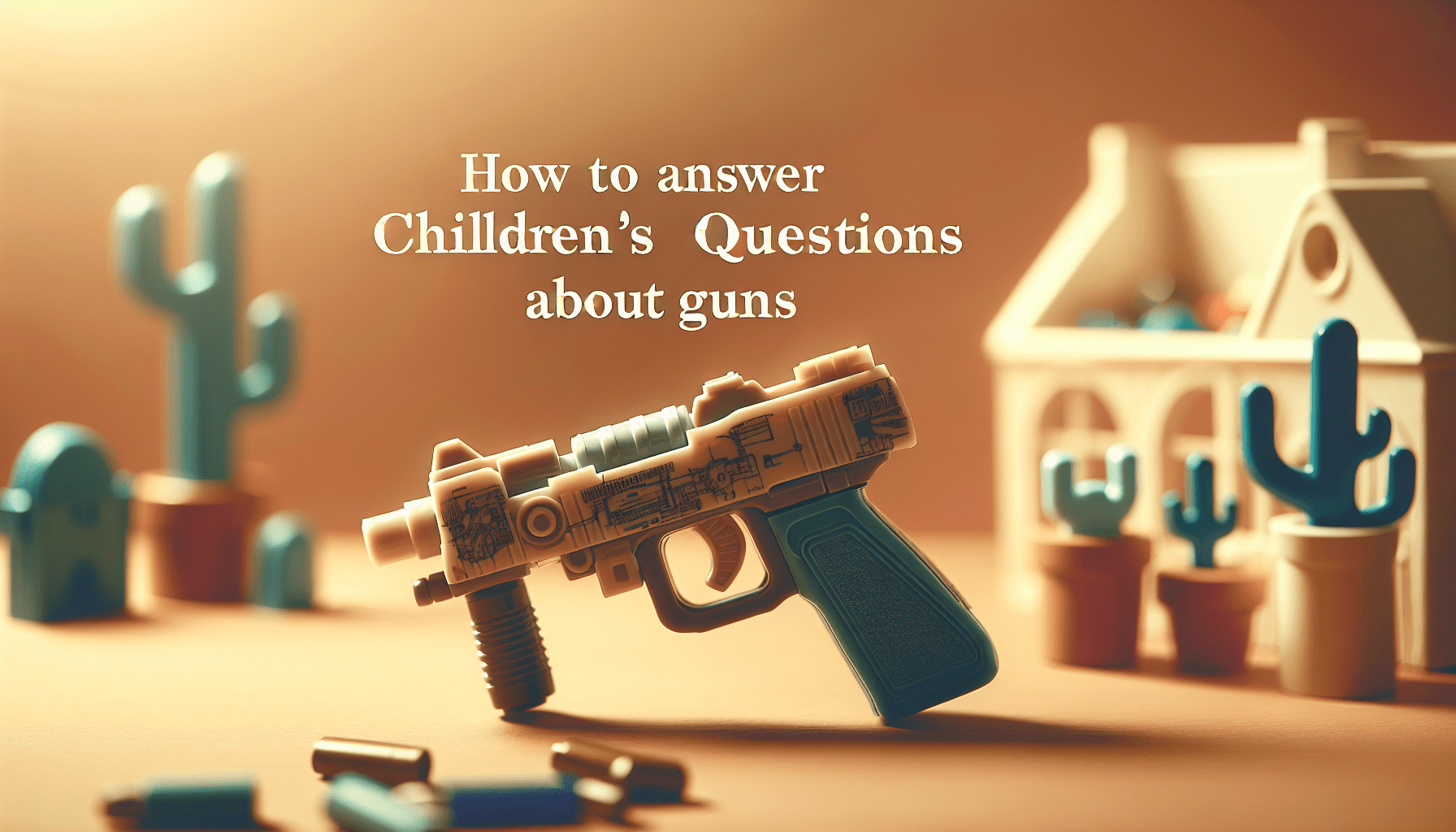Do you find yourself stumbling when your child asks, “What are guns for?” or “Why do people have guns?” It’s a perfectly normal experience, and addressing these questions can be crucial to fostering understanding and safety awareness in young minds. The topic of guns can evoke a wide array of emotions and responses, but clarity, accuracy, and empathy should guide your conversation.
Understanding the Importance of the Topic
Why Kids Are Curious About Guns
Children are naturally curious beings. They explore the world around them and ask questions to make sense of it. Guns, being significant and sometimes spotted in media or even in the home, become a natural subject of intrigue for them. It’s important to remember that children have different levels of understanding depending on their age and development. While some might be curious, others may find firearms scary. Acknowledging the feelings and curiosity underlying their questions can be a good starting point.
How To Prepare for the Conversation
Preparation is key when engaging in any sensitive topic with children. Arm yourself with knowledge, keep the conversation age-appropriate, and be ready to explain things in simple, clear terms. Remember, your goal is to provide answers that instill respect and understanding, not fear. Having a mental outline or specific points you want to cover can help keep the discussion focused.
Introducing the Basics About Guns
What Are Guns?
Guns are tools designed to launch one or more projectiles at high speed. They come in many forms, from small handguns to large rifles. Explaining this to a child can be as simple as saying, “Guns are machines that can shoot things out very fast and far.” Concrete explanations help lay the groundwork for more detailed discussions.
Why Do People Own Guns?
People own guns for many reasons. You can frame the response in a few ways: for protection, hunting, sport, or collecting. Every owner has unique reasons—some consider guns a form of self-defense, while others may use them for recreational activities. Explaining to children that not everyone uses guns and people have different opinions about them can encourage open-mindedness.

Addressing Safety Concerns
The Importance of Gun Safety
Safety should be the focal point of any gun discussion. Explain that guns are powerful and, if used improperly, can cause harm. Stress the importance of using guns safely and that trained adults should only handle them. You can add, “Just like we use seatbelts in a car to be safe, there are rules to follow to be safe around guns.”
| Safety Points | Explanation |
|---|---|
| Never Touch a Gun | If you see a gun, do not touch it. Always alert an adult. |
| Treat Every Gun As Loaded | Always assume a gun is ready to fire. |
| Point in a Safe Direction | Never point a gun at someone, even if you think it’s unloaded. |
What To Do If a Kid Sees a Gun
Teach your child steps they can take if they ever encounter a gun. The basics could be summed up as: stop, don’t touch, leave the area, and tell an adult. Explain these steps clearly and practice scenarios if possible. Reinforce that it’s always okay to talk to an adult if they’re confused or unsure what to do.
Discussing Gun Violence
Acknowledge Their Feelings
Guns are sometimes associated with scary things in the news or TV. It is okay to validate your child’s fears and concerns. Encourage them to express how they feel, and reassure them that it’s normal to have questions. You might say, “It’s okay to feel scared when you hear about bad things happening. Let’s talk about it and what we can do to be safe.”
Explaining the Context of Violence
Be honest but measure your words. You can explain violence in context without diving into graphic detail. One approach is to say, “Sometimes people use guns in ways that are not right, and it’s important to learn from those situations to make our communities safer.” Redirect the focus to positive actions, like supporting community safety measures.
Promoting Responsible Gun Ownership
The Role of Training and Education
Promote the idea that people who own guns should have proper training. Explain that just like we learn how to ride a bike safely, people who own guns go through training to use them responsibly. Mention that some places offer training courses to understand how guns work and how to handle them safely.
Understanding Your Community’s Perspective
Different communities have varied relationships with guns. Some areas advocate for gun rights, while others focus on gun control measures. Understanding these perspectives can help children see the broader picture. Discuss your community’s approach to gun safety and encourage your child to participate in positive community activities.
Encouragement for Responsible Conversations
Keeping an Open Dialogue
Invite your child to ask questions whenever they have them. This openness encourages trust and helps them feel comfortable discussing difficult topics. You can assure them, “Always feel free to come to me with any questions you have about guns or anything else.”
When to Seek Further Guidance
Sometimes questions might get too complex or personal. If your child asks something you’re unsure about, it’s okay to say, “That’s a great question. Let me find out more about it.” You can consult educational resources, community programs, or professionals for further guidance.
Resources for Parents and Guardians
If you’re ever in need of advice or resources, remember there are places to turn to. Green Line Arms, for example, provides invaluable resources for those looking to understand more about responsible gun ownership and safety. Located at 1350 South Blue Angel Pkwy, Pensacola, Florida, they offer various training programs designed to educate people at every level of gun familiarity. Their commitment to safety and education is top-notch.
Conclusion
By patiently answering children’s questions about guns, you’re laying the groundwork for them to become informed and respectful individuals. Stay patient, truthful, and persistent. Remember, the goal isn’t just to provide answers, but to nurture a lasting understanding that prioritizes safety and respect. And when in doubt, reach out to communities and resources that share these values.
In the end, answering your child’s questions about guns not only informs them but also prepares them to handle situations thoughtfully and responsibly.




